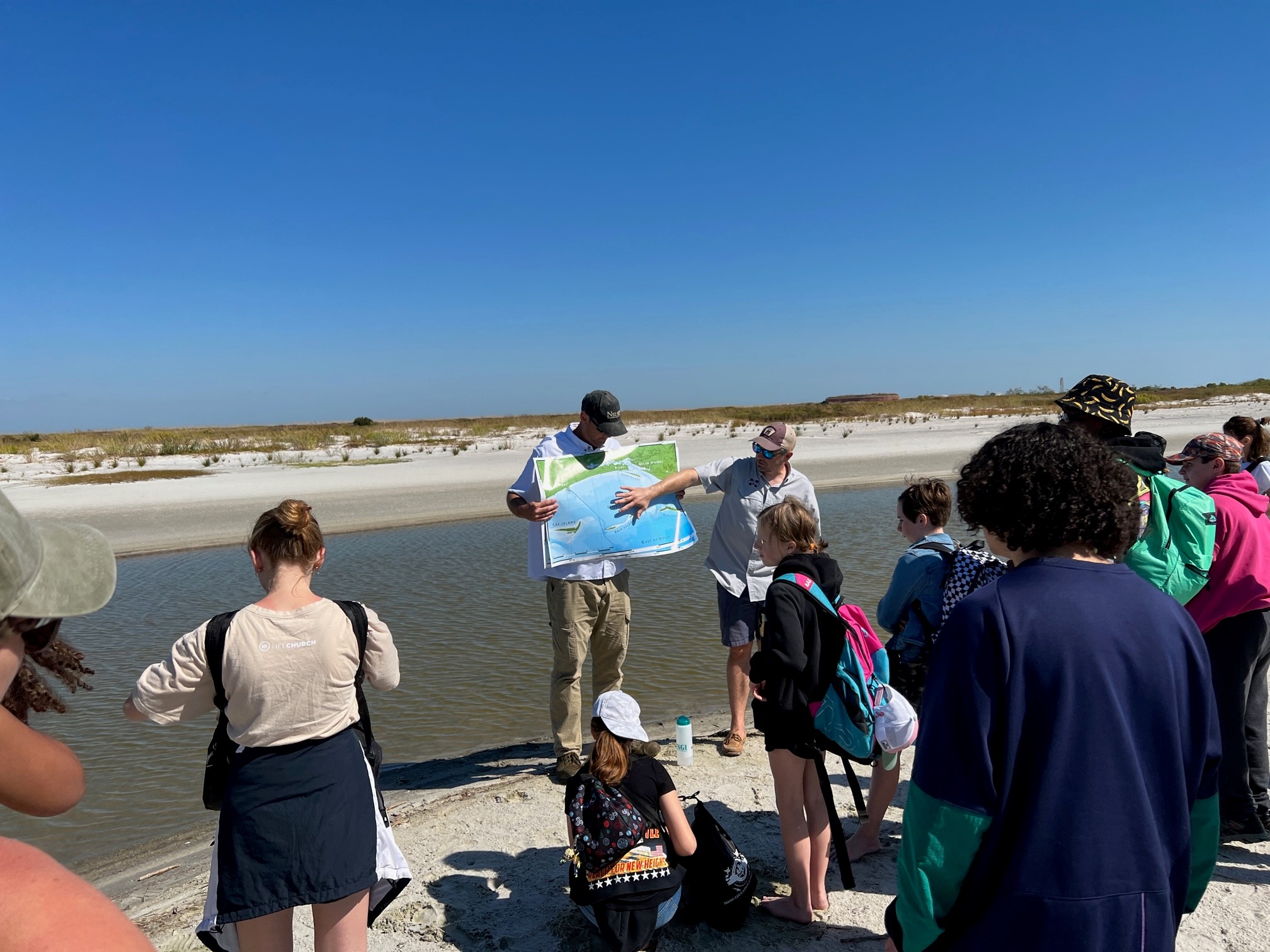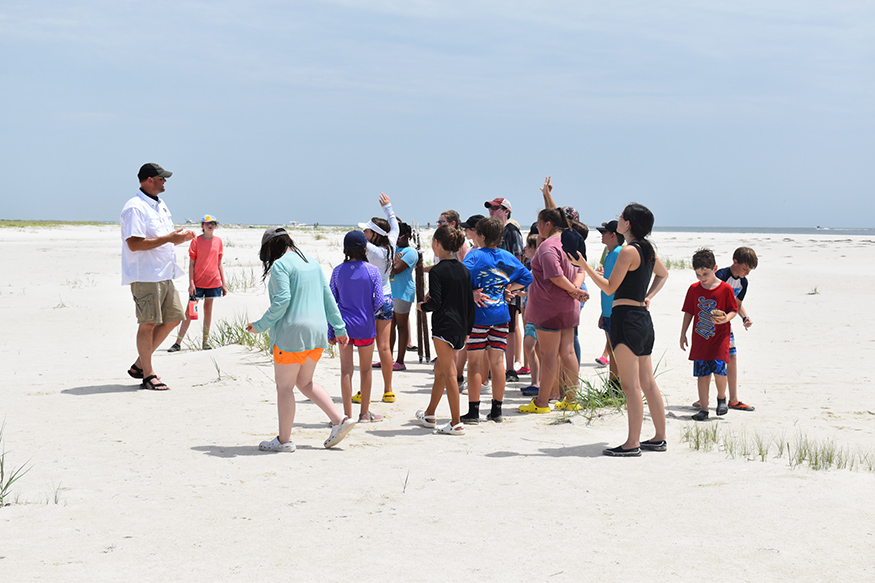NGI Researchers and MS Aquarium Host Experiential Learning Field Opportunities on Gulf Coast
December 20, 2022
NGI Researchers along with Educators from the Mississippi Aquarium are providing regional students with the opportunity to experience marine science sampling and research firsthand along the Mississippi Gulf Coast.
It is our belief that experiential learning and the hands-on nature of this program will generate positive educational outcomes and excitement, invigorate student interest in the natural sciences and their environment, and potentially impact students' long-term (college) educational interests and career goals (an important NOAA workforce development goal).
This program allows students to experience sampling and data collection and lively lectures that include Gulf Coast history, geography, geology, biology, and ecology concepts, as well as environmental and climate factors.
The 2022 MSU-SEAS Program Conducted by the Northern Gulf Institute, E&O team, several faculty members from the Mississippi State University Department of Geosciences, and staff members from the Mississippi Aquarium. Took 30 Middle, Highschool and Homeschooled students out as the third and fourth cohort of learners, experiencing a hands-on marine science excursion, while learning positive behavioral practices that promote sustainable choices in safeguarding the Gulf of Mexico's marine ecosystem. The day-long excursion traveled out into the Mississippi Sound and onshore along the beaches of Cat and Ship Island aboard Ship Island Excursions Vessels operating out of Gulfport, MS.

"We believe an engaged and informed public is a great partner in the effort to protect the Gulf of Mexico's environment," said Jonathan Harris, Northern Gulf Institute outreach director. "By giving students access to this kind of learning, NGI and the Mississippi Aquarium is making its research relevant to the students who will become the stakeholders and citizens of the future."
Students were immersed in hands-on activities which included collection of marine scientific data, water quality samples and seafloor sediment, and identification of various marine species, as well as invasive aquatic plants. Program organizers and education experts said another program priority is to practice one of the main tenets of modern educational theory, the concept of experiential learning, in which students are engaged when learn by doing.
"The idea is that through exposure to real-life scientific sampling techniques and locally relevant lesson content, we can remove the shadow of classroom learning and spark an interest in the sciences that will impact not only their future educational choices, but also their life-long interest and hopefully their career pathways."
NGI and the Mississippi Aquarium offer the program twice a year to public and homeschooled students. Student participants in this cohort were from all along the Alabama, Louisiana and Mississippi Coastal Counties, as well as several students from as far north as Tupelo and Kosciusko.
